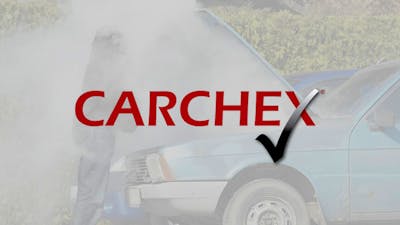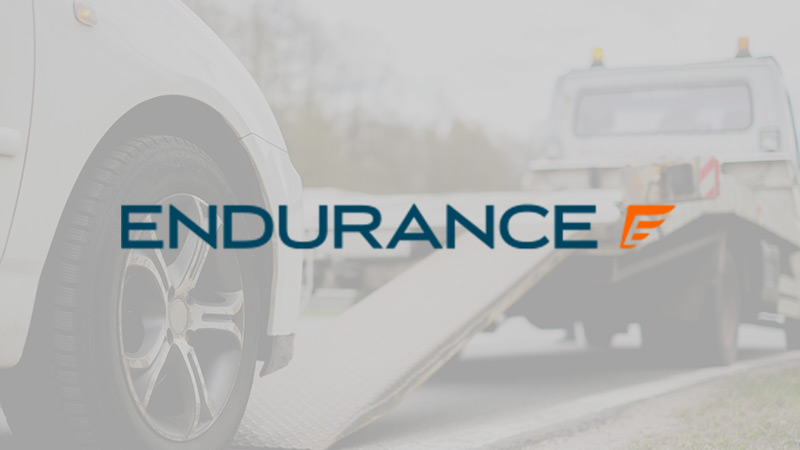What is a Car Warranty Administrator?
Extended warranties are on a lot of peoples’ minds these days. Americans are keeping their vehicles longer than they used to, which means your car is more likely to break down before you trade it in for a newer model.
Enter the vehicle service contract, more commonly, if inaccurately, known as the extended warranty. In our Extended Warranty Insider’s Guide we gave you an overview of how the industry works, including the three tiers of operation: marketing sellers, administrators, and insurers.
Popular Warranty Providers
Extended Warranty Admins Overview
Now, let’s talk more about the administrators.
When you buy a service contract for your car, it gets passed on to an administrator which is responsible for carrying out the obligations specified in the contract. Sometimes the administrator is the same company you bought the extended warranty from, but often it’s an entirely separate entity.
When your vehicle breaks down, your service call will be to the administrator. Their role is to authorize repairs, reimbursements, and anything else the contract obligates them to. That’s why it’s important to know about your contract’s administrator, because they’re the ones you’ll be dealing with.
The only time you’ll work with another company is if the administrator fails to do what it’s supposed to do, either by improperly denying a claim or being unable to afford paying for it. At that point you’ll move to that third tier, the insurer. But in most cases, it’s the administrator that will handle everything to do with your contract once you buy it.
Who Are Some Top Extended Warranty Administrators?
Omega Auto Care
Omega operates out of Jacksonville, Florida. The company sells three main tiers of service contracts, from coverage for brand new vehicles, all the way down to cars up to 15 years old with almost a quarter-million miles on the clock. An Omega car warranty includes some features that aren’t often seen on vehicle service contracts, including a year of maintenance discounts for all plans.
Car Talk’s Managing Editor was able to personally speak with the President of Omega, Patrick O’Brien, about their company and goals for their business. Mr. O’Brien had this to say, about his clientele and current business model.
“How do you help people? You give them a place to call, to get help when they need it. And that's really what we try to do.”
- Patrick O'Brien, President of Omega
Pros and Cons of Omega Auto Care
- All plans include roadside assistance; Jump starts, tire changes, towing, and more.
- Deductibles for an Omega warranty can be waived if you use a RepairPal certified shop.
- New vehicles can be covered by an exclusionary contract, which covers anything not listed in the “what is not covered” section - something experts often recommend trying to get.
- 4.56 star rating on the Better Business Bureau.
- Plans may be a little more expensive than some competitors, depending on coverage.
Mercury
Mercury is an insurance company which provides home, auto, and other traditional insurance policies alongside its vehicle extended warranties. Independent agents and companies such as autopom! sell Mercury extended warranties. Its plans offer tiered levels of protection, with the top tier being exclusionary, meaning anything not specifically noted as not covered, will be. Experts often recommend getting an exclusionary contract when possible.
Car Talk talked with Jim Donaldson, the General Manager of Mercury Mechanical Protection about this article. He had much to say about Mercury, and pointed out his company's reaction to the financial hardships that their clientele were experiencing during the pandemic.
"Mercury was, to our knowledge, the only Vehicle Service Contract, and Mechanical Breakdown Insurance provider that extended time for the consumer to file claims during the Pandemic. We not only extended the time, we sent letters to the contract and policyholders to notify them they had an extended period to file claims."
- Jim Donaldson, General Manager of Mercury Mechanical Protection
Pros and Cons of Mercury
- Offers auto insurance deductible reimbursement on its highest-tier plan.
- No limitations on where you can have repairs performed.
- Mercury extended warranty coverage is transferable.
- A+ rating on the BBB, though reviews on the site are mixed. Our research shows that BBB ratings for Mercury vary widely. There a few different Mercury groups out there, so make sure to do your research.
- State by state offerings are unclear on the website. Mercury site seems to infer that coverage is only available in 11 states, but our source says coverage is available in 49. Call to confirm if coverage is available in your state.
Integrity
Integrity Warranty is a Tennessee-based plan administrator offering several tiers of coverage, from a basic-level plan that covers a limited number of items to a “total exclusionary” plan which covers much more. An Integrity Warranty contract is only available through independent and franchised dealers.
Pros and Cons of Integrity
- Offers plans even for 20 year old cars with up to 200,000 miles.
- Generally good BBB reviews, with a 4.4 out of 5 rating.
- Coverage tier brochures available for download, taking some of the mystery out of plan differences.
- Not easy to find a seller without calling an 800 number or emailing a customer service account.
- Only available through independent and franchised dealers.
- Information on exactly what is excluded from exclusionary plans is not readily available to online shoppers.
The Car Talk Editorial team attempted to reach out to Integrity. At the time of this publication, we have yet to hear back.
Royal
Royal’s been providing service contracts for more than 3 decades, both through independent agents such as autopom! and car dealerships. There are multiple tiers of coverage available from a Royal car warranty, which apply to vehicles with as many as 175,000 miles on the odometer.
Pros and Cons of Royal
- Exclusionary contract available; Covers anything which is not specifically listed. Experts often recommend exclusionary contracts over regular ones.
- Contracts are transferable for a fee if you sell your car.
- You can choose your own mechanic.
- Despite an A+ BBB rating, reviews on the BBB’s site are extremely poor; 1.11 out of 5 stars.
- Researchers found many mentions online of denied claims.
- Electric, hybrid, and diesel drivers are charged more than gasoline-powered car drivers.
The Car Talk Editorial team attempted to reach out to Royal. At the time of this publication, we have yet to hear back.
American Auto Shield
American Auto Shield has been administering service contracts for nearly 20 years. They’re sold through CarShield, a vendor which only sells American Auto Shield car warranties.
Car Talk researchers did a very lengthy review of CarShield, and we STRONGLY suggest checking it out before you buy a policy. No really… Read it. Like, right now.
Pros and Cons of American Auto Shield
- 250,000 miles on your odometer? You can still get a service contract from AAS.
- Sample contracts are posted on their website, so you know what you’re getting before you buy.
- Difficult to find pricing without giving out contact information.
- Low BBB rating and numerous negative online reviews.
- Many questionable business practices reported for American Auto Shield and CarShield.
What Does an Extended Warranty Administrator Do?
The administrator holds your actual vehicle service contract. It’s responsible for carrying out anything the contract says you’re entitled to, whether that’s paying for your car repair, towing your car, and in some cases, even paying for meals and lodging if you have a breakdown far from home.
It’s also responsible for adhering to the laws of the state the contract was issued in. We created a thorough state by state guide of those laws, which you can read here.
What Makes a Good Car Warranty Administrator?
A good vehicle service contract administrator will be responsive and prompt when your car breaks down. It will pay for anything the contract says it should pay for, and won’t deny a claim unless the contract doesn’t cover the problem. It won’t try to blame covered breakdowns on non-covered parts unless they really did cause the trouble.
Finally, a good warranty administrator won’t affiliate itself with shady partners, such as dishonest telemarketers claiming to be from your car’s manufacturer.
How Do You Find Out Who Your Administrator Is?
That’s easy! Just check your contract. Most states require your contract to disclose who your administrator is, and how to contact them. If you’re looking for the information before you buy, simply ask your sales agent. They should be able to tell you right away; if they can’t, it’s a sign that you may not be dealing with an above-board seller.
When Should You Talk to Your Warranty Administrator?
First and foremost, you should talk to your administrator any time your vehicle breaks down in a way that’s covered by the contract. That doesn’t mean you should call them any time your car has a problem. Most contracts exclude certain systems - catalytic converters are common exclusions - and if a non-covered system breaks, your administrator won’t help you.
You should notify your administrator before you have any covered work performed on your car, especially if your contract requires prior authorization for any repairs. And you should carefully note what you need to do to make sure the administrator is obligated to pay your claim. Things like authorizing tear-down inspections or providing receipts for the routine maintenance you’ve had done; you have been keeping up on your scheduled maintenance, right?
You should talk to your administrator if you sell your car - many contracts can be transferred to the next owner, sometimes for an administrative fee. You should also contact the warranty administrator if you decide you want to cancel your contract. Depending on how long you’ve had it and whether or not you’ve filed any claims on it, you might get a pro-rated refund or even a complete refund.
For more information on extended warranties, look through our Extended Warranties Insider’s Guide and our top picks for the Best Extended Warranties available in the industry today.










